How 1 Woman Created a Community For 3,500 Caregivers of Children With Special Needs
Nayi Disha was founded to support parents of such children, empowering them with the right resources and necessary information, to help them care better for their children.

I live in Gurugram, a metro city where most services are accessible and available. There are enough support groups online and offline, and yet, a friend had to run from pillar to post to find a developmental pediatrician for her child. I realised that things aren’t that accessible.
While there is information online, my friend did not find a support group to help her particular issue.
Prachi Deo also experienced this four decades ago when her brother was diagnosed with Down Syndrome.
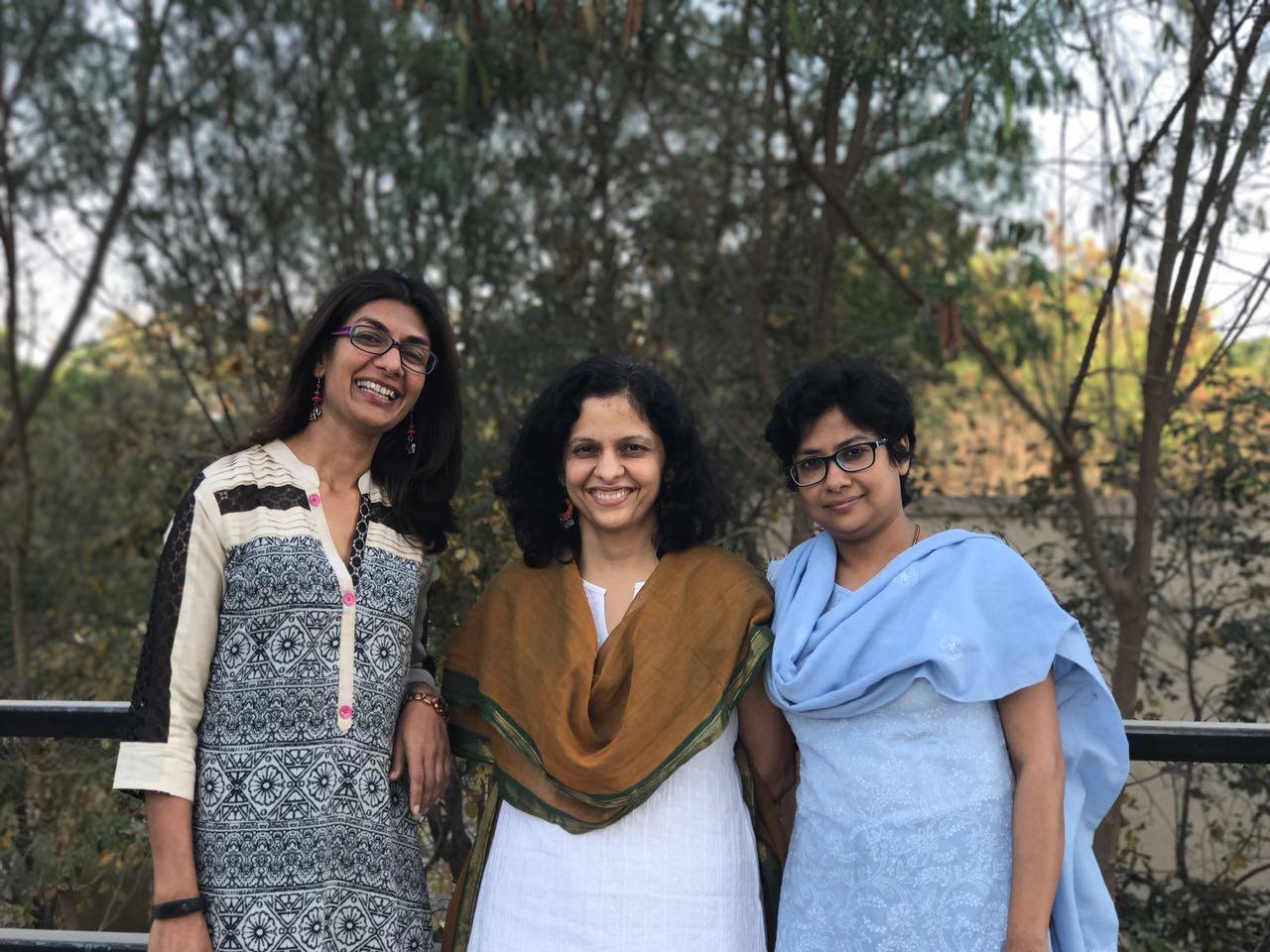
A technologist, Prachi could have chosen to walk the path tread by many, but she chose to set up an organisation. Aptly named Nayi Disha—meaning new path—it helps caregivers support their children with intellectual and learning disabilities. Sudarsana Kundu and Reema Gupta co-founded the organisation with her.
In this exclusive interview with The Better India, she shares why it is important for caregivers to have a support system.
The Birth of Nayi Disha
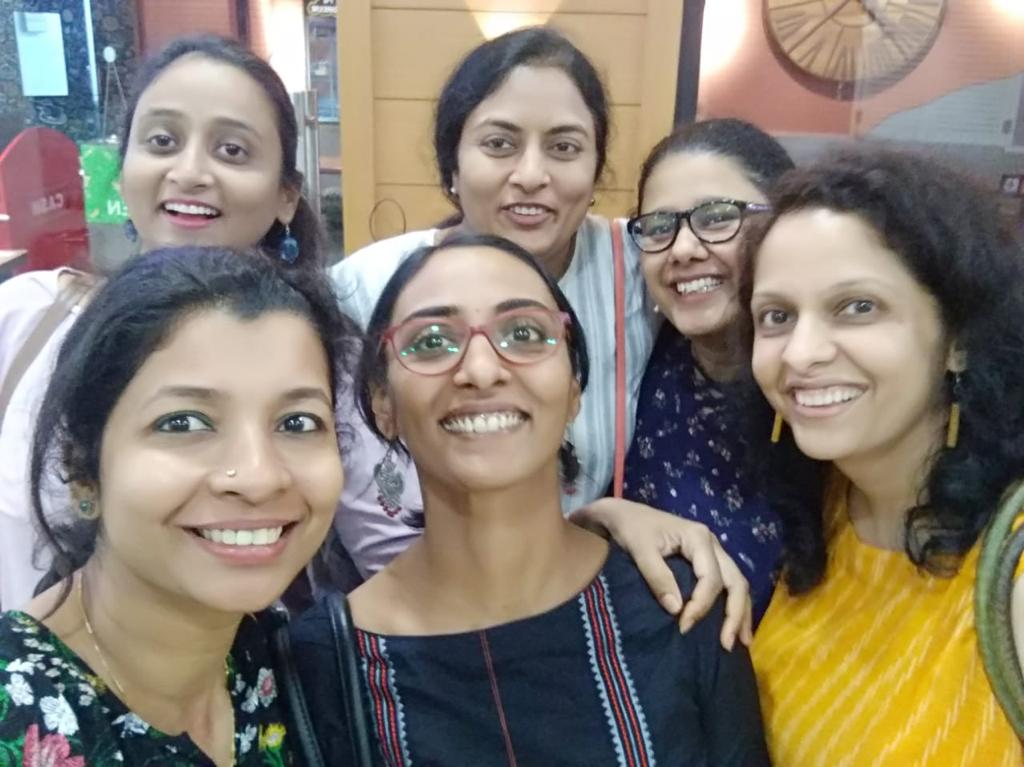
On one of her regular evening walks, Prachi was speaking to Sudarsana, a conversation that led to the birth of Nayi Disha in October 2015.
Prachi says, “I saw first-hand, how difficult it was for my parents, given that my brother was diagnosed with Down Syndrome. I was willing to accept that there was no access to such information forty years ago. What surprised me was how little things had changed since then.”
She shares how her brother’s learning disability was normalised at their home because their parents treated neither of them differently.
“But,” she shares, “when we would step out, we would experience social stigma, which affected my mother. But the cause for the stigma was a lack of awareness.”
So, Nayi Disha was founded to support parents of such children, empowering them with the right resources and necessary information, to help them care better for their children.
Why support the parents and not the children? Prachi answers, “There were many centres that were working with children with disabilities but leaving out the parents. Empowering them is equally important. There can be no success story without empowering the real torchbearers (parents and caregivers).”
Also Read: Amazing Mother Creates a Unique Place for The Talents of Her Son With Down Syndrome
How do they do this? By leveraging technology, she tells me. Here are three ways:
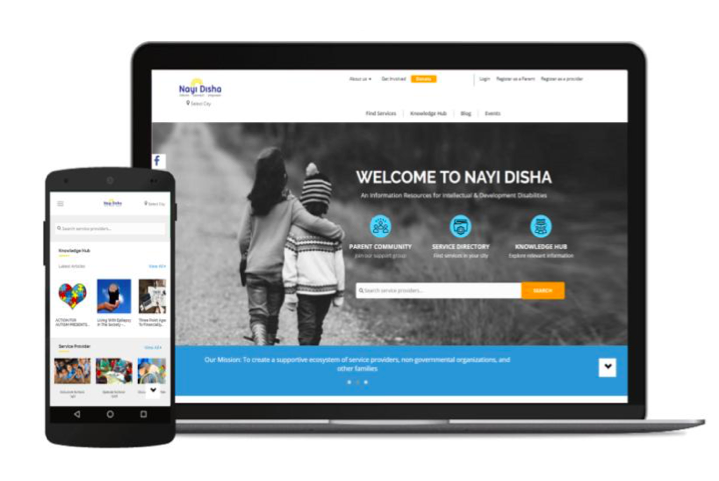
1. The service directory
A national directory, this is a comprehensive list of everything that a parent might need to raise their child. Some examples are a pediatric neurologist or even a music, yoga, dance teacher.
Nayi Disha provides the contact details after vetting them. Parents can also rate and review service providers. Prachi observes, “We go through several reviews before visiting a new restaurant or watching a film, shouldn’t we be doing the same before we send children, who are often non-verbal, to such classes and therapy sessions?”
They are present in Hyderabad, Mumbai, Pune, Bengaluru, Indore and Dehradun but intend to reach every town and city in the country, where details of shadow teachers or others who can help will also be added.
2. Knowledge hub
Many times, parents have not heard of conditions like Autism or Down Syndrome until their child’s diagnosis. In such cases, Prachi observes, it is challenging to help them understand the condition across the spectrum. Nayi Disha’s content, however, breaks down the condition, helping parents understand it, and then, finding the right therapy.
Prachi says, “Did you know that the government comes out with various schemes to support children with such intellectual and learning disabilities from time to time? The knowledge hub consolidates this information on one platform, making it easy for parents to access.”
She adds that their content framework covers life stages across conditions.
Although this information is available primarily in English, there is some also in Hindi and Telugu. “We want to make the platform simple and multilingual so that we can reach a wider audience. For this reason, it is also not text-heavy.”
3. A community of and for parents
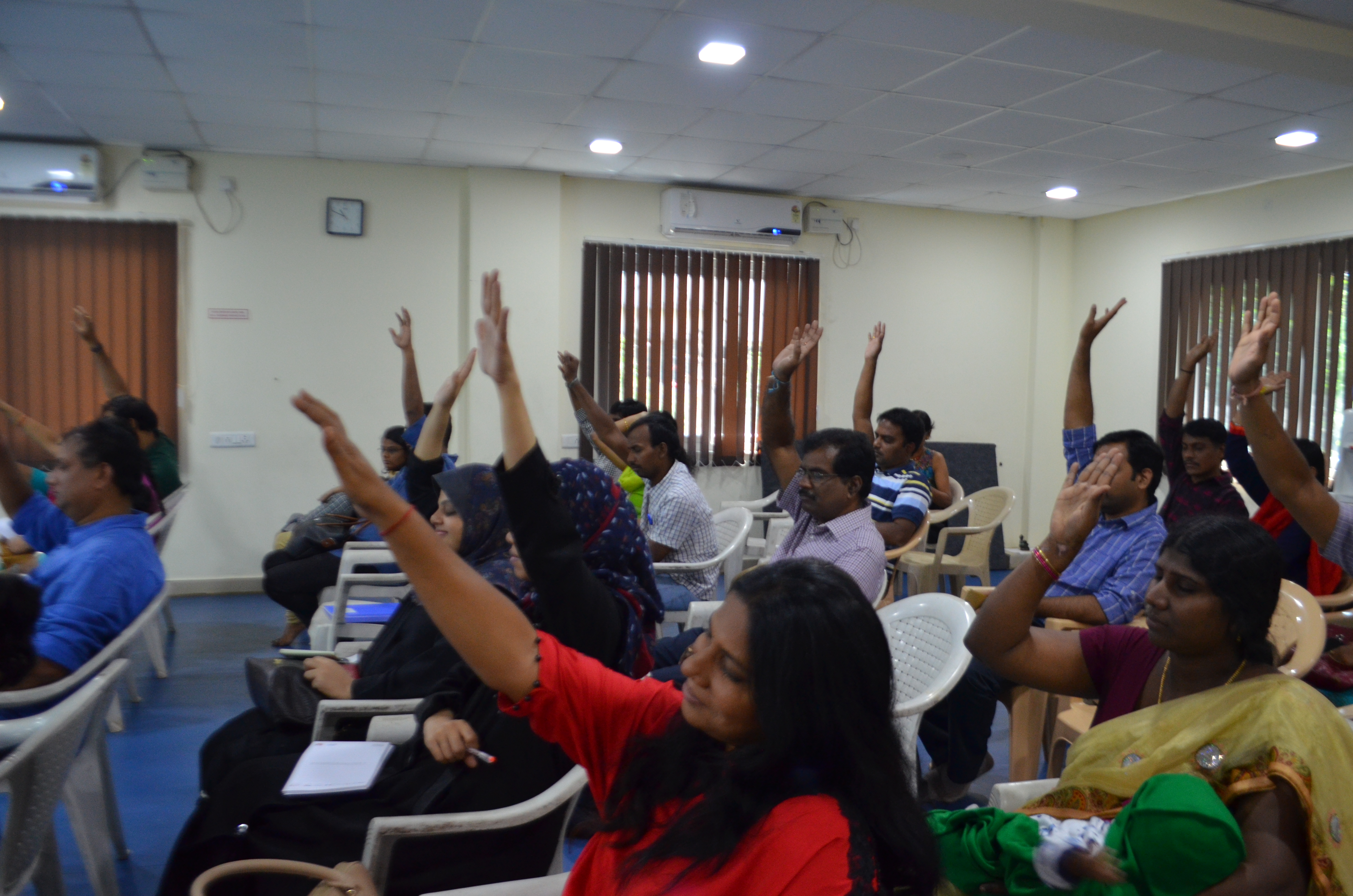
“Inclusion starts at home; looking at how loving and caring my parents were towards my brother, shaped my thinking to a great extent,” says Prachi.
Nayi Disha’s nine online support groups are spread across cities, conditions and age groups.
They exchange information and support each other. ‘Sakhiyaan’ is a group for mothers, which has monthly meetings, where caring mothers can slow down and take some time off to prevent burnout. Shopping outings or a soap-making workshop are some popular activities.
30 parent champions take charge of monitoring the WhatsApp groups for the robust community of almost 1,400 parents.
Impact
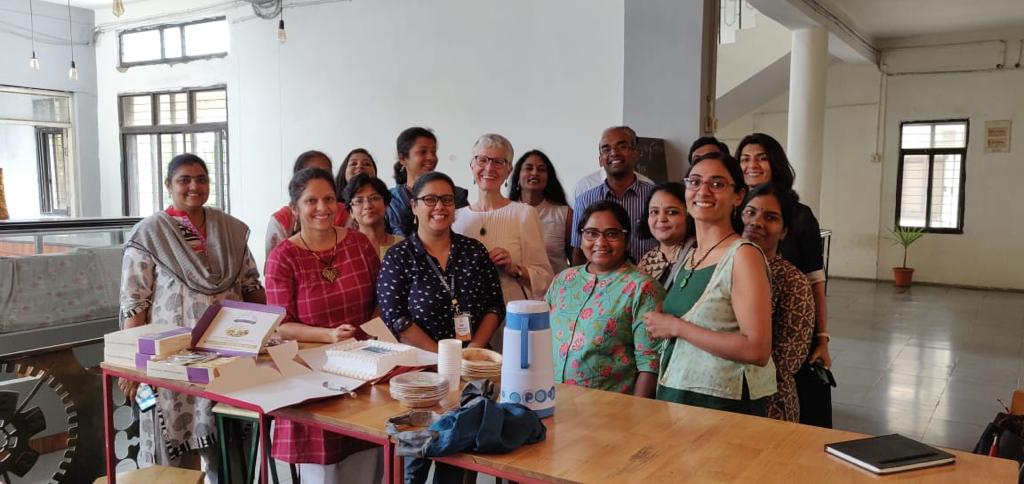
In one of their first workshops about communicating with children, Prachi recalls meeting a parent whose six-year-old daughter had been diagnosed with Down Syndrome. Being a part of the community made the mother provide better services for her daughter.
With more than 83,000 visitors to the website and 500+ users visiting the Nayi Disha platform each day, nearly 3,500 parents have been benefitted through workshops and events. All this helps parents find their calling, while they are also caring for their children.
Speaking about Nayi Disha’s directions, Prachi says, “We have started translating the existing material to Hindi. While the platform is mobile responsive, we plan to build an app that will contain all the required data.”
Team Nayi Disha has four full-time team members, five freelancers and many volunteers. Empowered parents are coming out to help others, organising and running events—a huge validation for the organisation.
You May Also Like: Harini’s Story: The Lessons Learnt While Raising a Child with Down Syndrome
Notably, no fee is charged to access any of the content. Prachi tells me that they rely on sponsors and donors, and hope to raise funds in the future.
To know more Nayi Disha, visit their website and their Facebook page here.
(Edited by Shruti Singhal)
Like this story? Or have something to share?
Write to us: [email protected]
Connect with us on Facebook and Twitter.

Similar Story

I Live With Schizophrenia; Here’s What I Want People Around Me to Understand
Schizophrenia is often regarded as the most severe among all mental illnesses, but people living with it are not hostile, aggressive, or “wild”, as they are often believed to be. There are many ways we can build individual and community support for those living with the disorder.
Read more >
If you found our stories insightful, informative, or even just enjoyable, we invite you to consider making a voluntary payment to support the work we do at The Better India. Your contribution helps us continue producing quality content that educates, inspires, and drives positive change.
Choose one of the payment options below for your contribution-
By paying for the stories you value, you directly contribute to sustaining our efforts focused on making a difference in the world. Together, let's ensure that impactful stories continue to be told and shared, enriching lives and communities alike.
Thank you for your support. Here are some frequently asked questions you might find helpful to know why you are contributing?


This story made me
-
97
-
121
-
89
-
167












